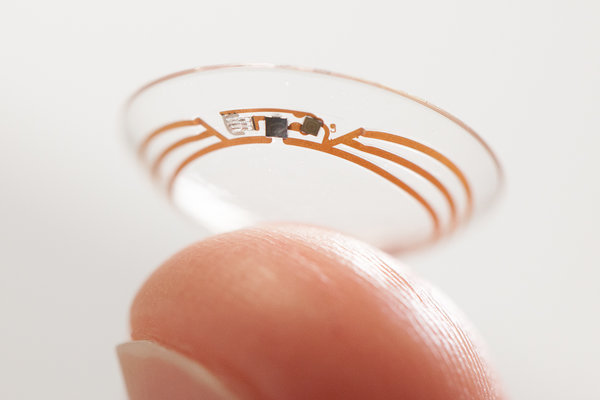
Google and Novartis announced this week that they're to develop a smart contact lens with the potential to monitor the wearer’s blood sugar levels.
Novartis said that Alcon, its eye care unit, had struck a deal to license so-called smart lens technology from one of Google’s research divisions. Financial terms were not disclosed. Alcon (formerly CIBA Vision) offer comprehensive eye health and vision care products globally.
As part of the agreement, Alcon said it would look to create products from Google’s prototype smart contact lens, which uses miniature sensors and a radio antenna thinner than a human hair to track glucose levels. The companies did not specify how the data would be transmitted.
Information about blood sugar levels, which is particularly useful for people with diabetes, could be uploaded to smartphone devices and used by doctors and patients to monitor the data almost in real time, according to a statement from Google issued when the company released its prototype in January.
Joe Jimenez, the chief executive of Novartis, said that product was not as far along in development, and that both lenses were still early in their development.
“It’s not going to happen overnight,” he said. “This will take a few years, as opposed to a few months.”
Mr. Jimenez declined to disclose financial details of the deal. He also said that it was too early to estimate what such lenses, if they are eventually approved, would cost.
Sergey Brin, a Google founder, said the company’s smart lens technology could “help improve the quality of life for millions of people.”
The push to develop medical technology comes as several of the world’s largest technology companies are looking for new areas for growth. Analysts say that the pharmaceutical and health care sectors are crucial targets as people increasingly take greater control of their own medical treatment.